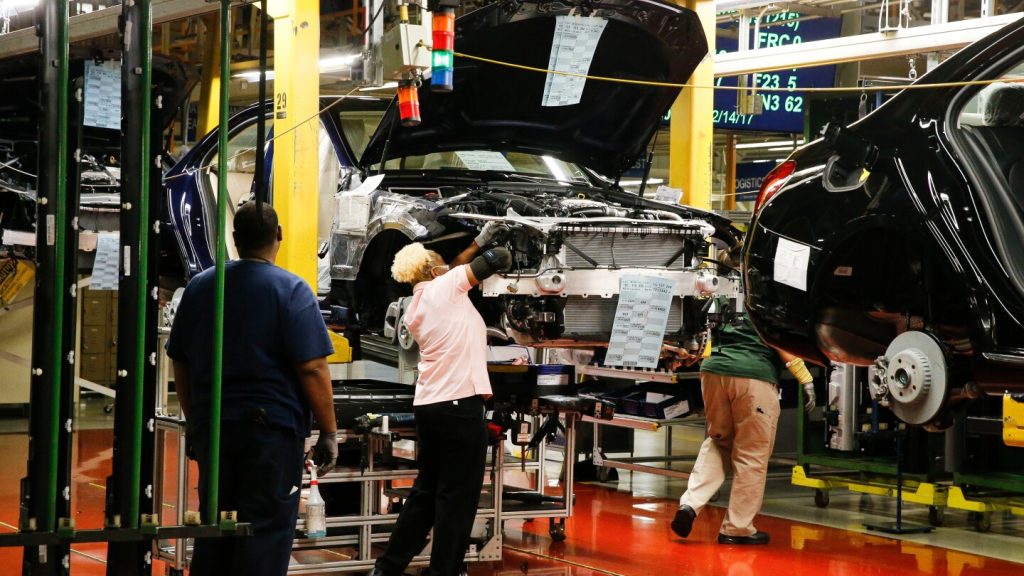The majority of workers at a Mercedes-Benz plant near Tuscaloosa, Alabama, are seeking to join the United Auto Workers union, following a trend of non-union plants across the country. The workers have filed a petition with the National Labor Relations Board for a union vote, with more than 5,000 out of about 6,100 employees supporting the move. They are advocating for safer working conditions and the ability to address concerns related to job sustainability. The union vote at the Mercedes plant is expected to take place by early May, although a specific date has not been set yet.
Mercedes-Benz U.S. International has stated that it respects the workers’ choice on whether to unionize and will ensure a fair and informed voting process for all employees. The company is committed to providing workers with the necessary information to make an informed decision during the election process. However, the UAW has accused Mercedes management of engaging in anti-union tactics, leading to the filing of federal labor charges for union busting and labor violations. The workers at the Alabama plant first expressed their desire to join the UAW by signing cards in support of the union in February.
The UAW has been on an organizing campaign since last fall, targeting nonunion auto plants after successful contract negotiations with Detroit’s Big Three automakers. The union aims to sign up workers at more than a dozen non-union plants, including those operated by Tesla, Nissan, Hyundai, Kia, Toyota, Honda, and others. Over 10,000 non-union autoworkers have signed union cards in recent months, reflecting a growing interest in joining the UAW. In addition to Mercedes, the UAW has highlighted public campaigns at Hyundai in Montgomery, Alabama, and Toyota in Troy, Missouri as part of their organizing efforts.
The unionization drive at the Mercedes plant in Alabama comes on the heels of a similar effort at a Volkswagen factory in Chattanooga, Tennessee, where workers are also set to vote for UAW representation. The push for unionization in the auto industry reflects a broader movement among workers to address issues such as job security, working conditions, and fair wages. The UAW’s organizing efforts at non-union plants seek to give workers a voice in shaping their workplace and advocating for their rights collectively. The outcome of the union vote at the Mercedes plant will have implications for the future of labor relations in the automotive sector and beyond.


